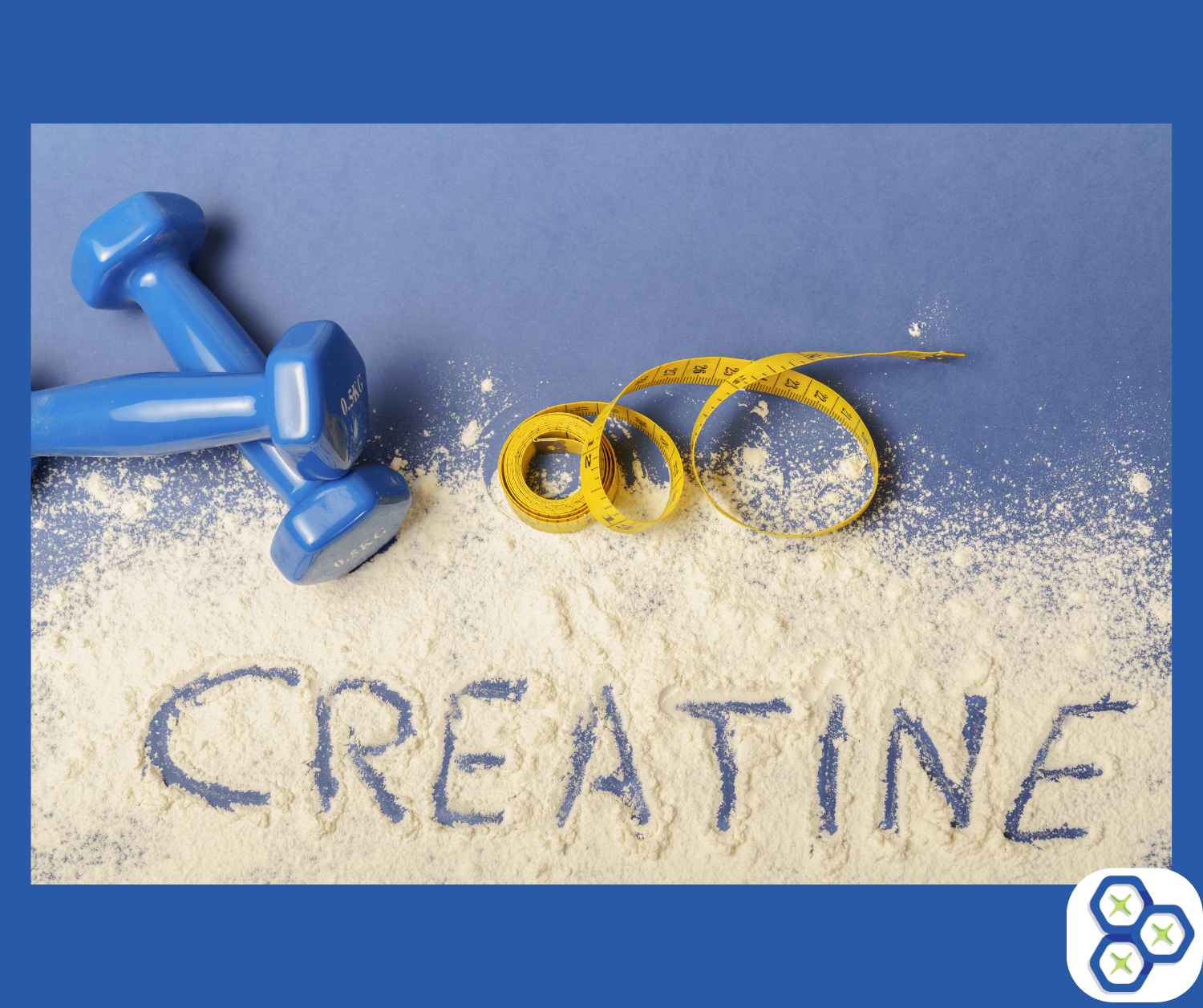The Relation Between Creatine and Weight Gain
Creatine is one of the most popular supplements for muscle growth but there’s one big question on everyone’s mind:
Does it actually make you gain weight?
Some believe it causes unwanted pounds…, while others argue it’s beneficial for healthy weight gain. So, what’s the truth?
Creatine works by pulling water into muscle cells, which can result in a temporary increase in the scale due to water retention. This added water supports muscle function and helps with strength and recovery.
Is this weight gain real or just an illusion?
This blog post will 100% clear all your questions and possible confusion about creating. Keep reading until the end to understand the impact of creatine on body weight and how you can use it effectively.
Does Creatine Make You Gain Weight?
Weight gain from creatine can occur in three distinct ways: water weight, muscle mass, and, in rare cases, non-muscle weight gain.
Let’s break these down to clarify where creatine plays a role.
Water Weight
When you start using creatine, your muscles retain more water due to increased intracellular hydration. This is a natural outcome of creatine’s function—it draws water into muscle cells to enhance their energy stores.
As a result, you may notice an increase of 1-3 pounds within the first week. This “water weight” is not fat but a temporary side effect that supports better muscle performance and recovery. A study published by Joseph F. Clark confirms that water retention is the primary contributor to early weight gain with creatine supplementation.
Muscle Mass
With consistent use and proper training, creatine contributes to long-term muscle growth. It increases the availability of adenosine triphosphate (ATP), the energy currency your muscles need for high-intensity workouts. This leads to improved strength, more effective workouts, and increased muscle mass over time.
According to research published in JISSN (Journal of the International Society of Sports Nutrition), creatine supplementation can enhance lean muscle growth by approximately 1-2% over several weeks.
Non-Muscle Weight Gain
Creatine itself doesn’t cause fat gain—it has no calories and doesn’t alter fat metabolism. Some users may experience non-muscle weight gain due to indirect factors like increased appetite or consuming more calories to fuel intense training.
This type of weight gain isn’t directly linked to creatine but rather to lifestyle changes while using it.
Creatine and Water Retention: Good or Bad?
Water retention is one of the most immediate effects of creatine supplementation and a primary reason people notice rapid weight gain.
What exactly is water retention, and why does it happen with this supplement?
What Is Water Retention?
Water retention refers to the body holding extra water within its cells. Creatine amplifies this by increasing the water content, specifically inside muscle cells. When you take creatine, it raises the concentration of phosphocreatine within muscles. This, in turn, pulls water into the muscle fibers, causing them to swell slightly.
This swelling isn’t bloating or excess fluid but a localized effect that creates a fuller, more muscular appearance.
Short-Term Effects on the Scale
The scale may show an increase of 1-3 pounds during the first few days of creatine use. This weight gain isn’t fat or muscle—it’s water stored in your muscles. This rapid change often leads to misunderstandings about creatine causing fat gain, but it’s simply the body’s natural response to improved hydration within muscle cells.
Is There Any Benefit of Water Retention?
Yes, water retention is beneficial in the following ways;
- Water retention plays a critical role in muscle performance.
- The extra water enhances cell volume, which improves protein synthesis, reduces muscle fatigue, and supports recovery after intense exercise.
- Athletes and weightlifters often find these benefits essential for maximizing strength and endurance during training sessions.
Creatine for Healthy Weight Gain: Is Creatine Good for Weight Gain?
Muscle Growth and Performance
Creatine is a healthy weight-gain dietary supplement because it enhances muscle growth over time. It boosts ATP energy production and enables muscles to perform better during high-intensity workouts.
This translates into increased muscle mass, an integral weight gain component for athletes and fitness enthusiasts.
Who Can Benefit?
This supplement is ideal for individuals aiming to build muscle, increase strength, or recover effectively after intense exercise. It’s particularly useful for bodybuilders, powerlifters, and anyone striving to gain lean mass while improving their athletic performance.
Average Weight Gain from Creatine Use
Over weeks of consistent supplementation, most users experience an average weight gain of 2-5 pounds. This includes initial water retention and gradual increases in muscle mass. Unlike fat, this weight gain reflects functional improvements that align with fitness goals, making creatine an excellent choice for sustainable, healthy progress.
A good way to measure where the gain has come from is to use an Omron fat measuring meter to see what percentage of body fat has shifted. Be sure to be hydrated and use it at the same time of day when monitoring the numbers. You may have lost body fat and gained muscle even if the number on the scale has not moved.
How to Use Creatine Without Worrying About Weight Gain?
Proper dosing is the only way to manage creatine’s effects. The following tips will help you adjust to using creatine.
Choosing the Right Dosage
A common approach is to start with a loading phase of 20 grams per day for 5-7 days, followed by a maintenance phase of 3-5 grams daily.
You can start by skipping the loading phase and starting with a steady maintenance dose can minimize the initial water retention while still delivering long-term benefits.
Stay Hydrated
Proper hydration is important when using creatine. While creatine pulls water into muscle cells, inadequate water intake can lead to discomfort or exaggerated water retention. Drinking at least 8-10 glasses of water daily is enough to keep your body hydrated.
Pairing Creatine with a Balanced Diet and Exercise
Creatine works best alongside a nutritious, protein-rich diet and a consistent workout routine. A well-structured plan ensures that the weight gain you experience is primarily lean muscle rather than excess fat. If it is temporary water weight it will pass while you stay the course.
Hair Analysis and Creatine
Creatine’s relationship with weight gain isn’t a mystery when you understand its effects on water retention, muscle growth, and overall performance. By using it strategically—through proper dosing, hydration, and a balanced diet—you can achieve your fitness goals without unwanted surprises on the scale.
If you’re looking to optimize your health and nutrition while using supplements like creatine, consider consulting a Hair Trace Mineral Analysis (HTMA) expert like me.
Schedule a complimentary call, and let’s discuss your health.
Copyright Scientific Nutrition, LLC 2024




